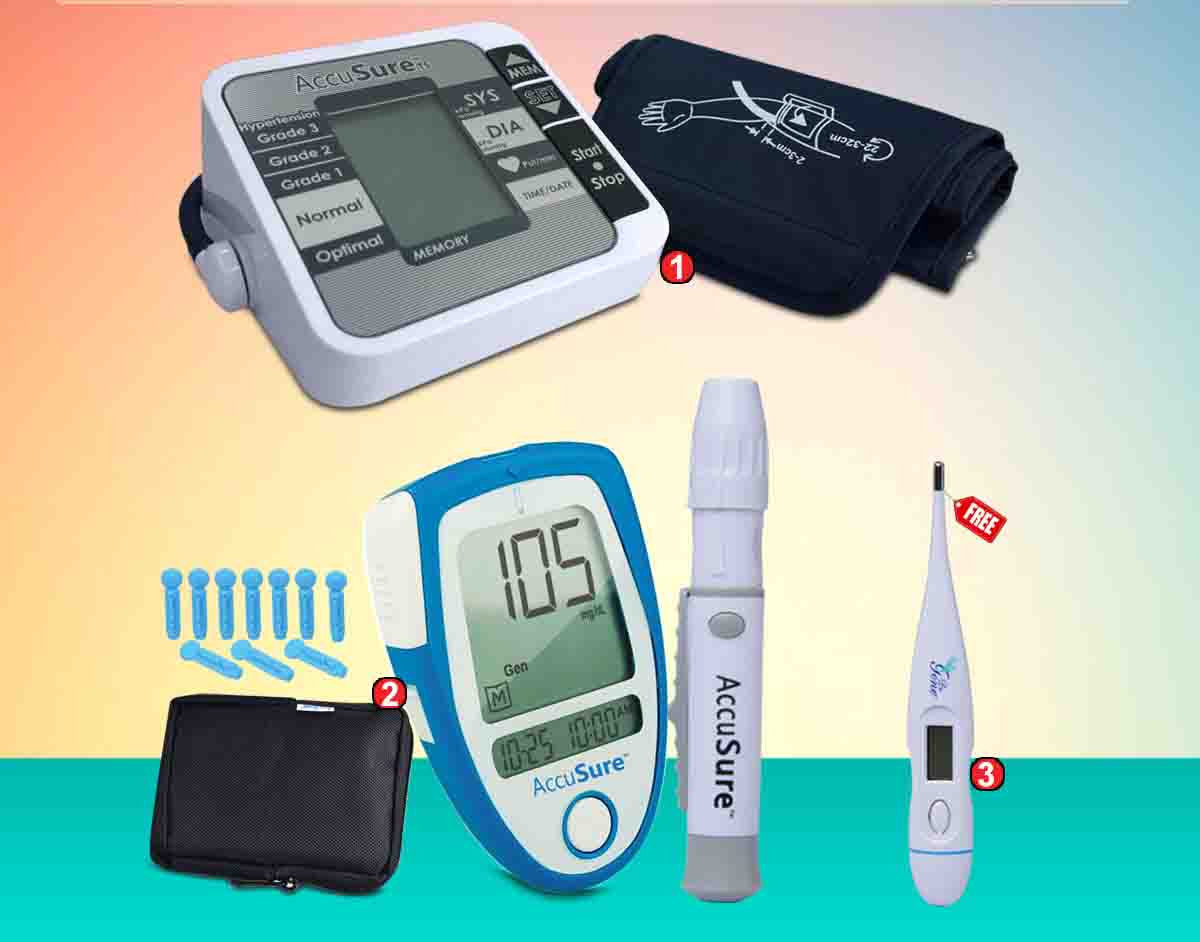It is possible to monitor various physiologic parameters like BP, temperature, oxygen supply, sugar at home in this pandemic. One should avoid going to hospitals for their basic routine checkup and should only visit if the situation goes beyond controllable. Measuring physiologic parameters using devices at home is called Remote Patient Monitoring (RPM). Diagnosing milder Covid-19 symptoms requires the use of a thermometer to check for elevated body temperature and an oximeter for oxygen supply.
Oximeters – The device that measures oxygen saturation is called a pulse oximeter and readings are often referred to as pulse ox. A normal pulse is greater than 95%. For a patient who is having difficulty in breathing, measuring their oxygen within the normal range can be very relaxing. Shortness of breath can be a side effect of anxiety and stress. One can check their pulse ox in case of feeling tightness in the chest. If the pulse ox reading is measured below 90%, then it is a sign to visit the doctor for help.
Sphygmomanometers – it is a device used to measure BP. A normal BP is considered to be 120 / 80 mmHg. A weak immune system can be a result of high BP, diabetes, and other issues which is at higher risk of Corona Virus. Their risk is about twice as high as that of the overall population. High BP damages our artery and reduces the flow of blood to the heart. It means the heart has to work harder to pump enough blood. This extra work can weaken your heart where it is unable to pump oxygen rich blood to the body. BP other than normal i.e. low and high, both are dangerous and can affect people of any age. Thus, by using this device one can be assured of their normal BP being at home.
Thermometers – A normal body temperature ranges from 97.60F to 99.60F. However, the body temperature depends on various factors such as a person’s age and sex, time of the day, method of measurement (oral, rectal, and armpit), food and fluid intake, etc. The Hypothalamus of the brain regulates the body temperature. If body temperature rises above normal range hypothalamus sends messages to sweat thereby heat gets removed from the body. If body temperature goes down, the hypothalamus sends the signal to make the body shiver thus warms up the body. Body temperature more than 1000F signifies fever. If a person’s body temperature is fluctuating between too high and too low, they should seek the doctor’s help.
Glucometers – It is a portable medical device for measuring the concentration of glucose present in the blood. Diabetic people generally use this to manage their unpredictable conditions. Normal glucose level ranges from 80 to 140 mg/dl. 140 to 200 mg/dl is considered prediabetes. Reading above 200 mg/dl signifies diabetes. People with diabetes are more likely to develop complications than people having normal sugar levels.
It would be better to get tested with these devices at home and be relaxed rather than rushing to the hospitals for minor physiologic changes.

 Essential devices one must have at home for a routine checkup or for emergency purpose in covidâ€
Essential devices one must have at home for a routine checkup or for emergency purpose in covidâ€







.jpeg)











.jpeg)



.jpg)


.jpg)




.jpg)


